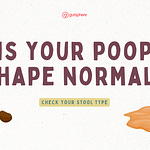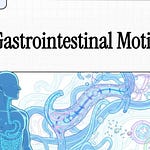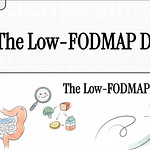#ibs #constipationrelief #guthealth #gutmicrobiome #digestivedisorder #digestivehealth #diarrhea
In this video, Gutsphere founder Bimal Maharjan explores the connection between personality traits and irritable bowel syndrome (IBS). The video delves into how traits like neuroticism, alexithymia, low self-directedness, low cooperativeness, and catastrophizing can worsen IBS symptoms. On the flip side, traits such as low neuroticism, high conscientiousness, psychological hardiness, high self-efficacy, resilience, and extraversion can be beneficial. Practical tips and strategies for managing these traits are also discussed, alongside a reminder to always consult with healthcare providers before making any changes.
00:00 Introduction to Gut Health and IBS
00:12 The Link Between Personality Traits and IBS
01:10 Disclaimer: Educational Purposes Only
01:42 Worst Personality Traits Linked to IBS
01:45 High Levels of Neuroticism
02:51 Alexithymia: Difficulty in Identifying Emotions
03:51 Low Self-Directedness and Its Impact
04:48 Low Cooperativeness and Social Interactions
05:41 Catastrophizing: Anticipating the Worst
06:42 Best Personality Traits for IBS
08:50 Psychological Hardiness and Resilience
11:29 Conclusion: Managing IBS Through Personality Awareness
Based on the research, certain personality traits appear to be more strongly associated with IBS, while others may be potentially protective. Here's a summary of the best and worst personality traits for IBS:
Worst personality traits for IBS:
1. Neuroticism: Consistently associated with higher IBS prevalence and symptom severity, especially in diarrhea-predominant IBS.
2. Alexithymia: Difficulty identifying and describing emotions is linked to increased IBS symptoms.
3. Low self-directedness: Associated with higher IBS prevalence.
4. Low cooperativeness: Linked to IBS, particularly in some studies.
5. Catastrophizing: This trait is strongly associated with increased IBS symptom severity.
Best personality traits for IBS (potentially protective):
1. Low neuroticism: Lower levels of neuroticism are associated with better outcomes in IBS.
2. High conscientiousness: Some studies found higher conscientiousness in IBS patients, particularly those with constipation-predominant IBS. This trait may help with treatment adherence.
3. Psychological hardiness: Negatively correlated with emotional dysregulation in IBS patients.
4. High self-efficacy: Associated with better coping and less severe IBS symptoms.
5. Resilience: Linked to lower symptom severity in IBS patients.
6. Extraversion: Some research indicates higher extraversion may be associated with less severe IBS symptoms compared to introversion.
It's important to note that while these traits show associations with IBS, the relationship is complex and multifaceted. Individual experiences can vary, and these traits should be considered alongside other biological, psychological, and social factors in understanding and managing IBS.
Citations:
[1] https://www.ncbi.nlm.nih.gov/pmc/articles/PMC4968122/
[2] https://www.ncbi.nlm.nih.gov/pmc/articles/PMC2626925/
[3] https://www.ncbi.nlm.nih.gov/pmc/articles/PMC3523040/
[4] https://www.wjgnet.com/1007-9327/full/v13/i47/6414.htm
[5] https://psychiatry-psychopharmacology.com/en/temperament-and-character-traits-in-patients-with-irritable-colon-13271
[6] https://www.sciencedirect.com/science/article/pii/S1877042811018428
[7] https://www.aafp.org/pubs/afp/issues/2021/0615/p727.html











